#School lunch
Explore tagged Tumblr posts
Text
Not to be “woke” on main but
SCHOOL LUNCH SHOULD BE FREE!!📢
WATER SHOULD BE FREE!! 📢
FOOD SHOULD BE FREE!!📢
HEALTH CARE SHOULD BE FREE!!📢
MEDICATION SHOULD BE FREE!!📢
IF YOU CANT LIVE WITHOUT IT, THEN IT SHOULD BE FREE!!📢
#human rights#political#free healthcare#healthcare#school lunch#punk#political punk#ok to reblog#water is a human right#food is a human right#shut up killian#killian will not shut up#queer punk
3K notes
·
View notes
Text
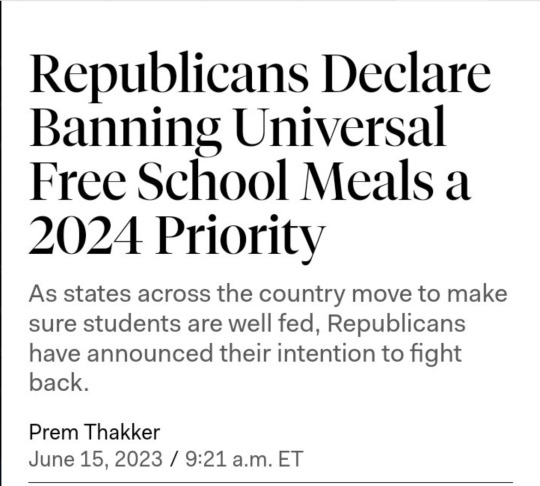
Link
Both Parties are not the same.
24K notes
·
View notes
Text
We ask your questions so you don’t have to! Submit your questions to have them posted anonymously as polls.
#polls#incognito polls#anonymous#tumblr polls#tumblr users#questions#polls about school#submitted june 6#polls about food#school#cafeteria#lunch#school lunch#food#high school
2K notes
·
View notes
Text
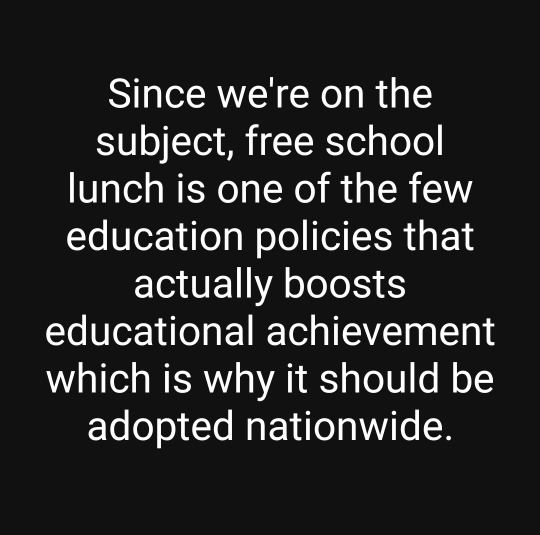
If free lunch boosts achievement, then we know taking away lunch lowers achievement.
Republicans are all about lowering achievement.
The white supremacy as GOP policy is manifest.
3K notes
·
View notes
Text
"A trial programme providing a free meal a day has yielded not just financial relief for households but also improved child nutrition and student outcomes such as attendance and focus.
The free school lunch initiative for children from poor or disadvantaged families was introduced by President-elect Prabowo Subianto and Vice-President-elect Gibran Rakabuming Raka as one of their key campaign promises. Mr Gibran is President Joko Widodo’s elder son...
The pair – who won the Feb 14 presidential election by a landslide and will be inaugurated in October – had in the lead-up to the polls pledged to offer free lunches and milk for students as well as nutritional aid to toddlers and pregnant women in a bid to lower the country’s stunting rate.
Over 20 per cent of Indonesian children under the age of five experienced stunted growth in 2022, according to the United Nations. Stunting, which is being too short for one’s age as a result of poor nutrition, can result in long-term development delays.
When fully implemented by 2029, the programme will cover 83.9 million beneficiaries across the world’s fourth-most-populous nation of nearly 280 million, and cost over 400 trillion rupiah (S$33.7 billion) a year – about 2 per cent of annual gross domestic product.
But on the ground, a trial that was first rolled out in January at 16 schools in Sukabumi, in West Java, has been warmly received by around 3,500 students, their parents and school leaders, who have seen positive changes.
For one thing, saving on the cost of lunches for four of her nine children has provided significant financial relief for Indonesian housewife Rofiati, 46.
Her husband, a teacher at an Islamic boarding school in Sukabumi, earns 2.5 million rupiah a month on average, and the free school meals have helped them save about 420,000 rupiah monthly, which she can put towards other household needs.
Her children do not usually have breakfast before school. Before the free lunch programme, her children would eat lunch only upon returning home from school. Lunch would usually consist of instant noodles, or dishes of vegetables, eggs, tempeh or salted fish.
“I am not worried any more because I know they will eat at school. They have more appetite as they eat together with their friends,” Ms Rofiati told The Straits Times, adding that her children’s appetites have improved and they also like the variety of the meals provided. In fact, her 11-year-old daughter has gained 4kg since the programme started.
Every day, students on the programme receive a lunch package worth 15,000 rupiah, containing rice, meat such as chicken, fish or beef, vegetables, fruit and milk.
At home, the family usually eats meat only once a week.
It is not just the financial savings that parents are happy about. Ms Depi Ratna Juwarti, who has two out of three children benefiting from the free lunches, has noticed other encouraging results.
“They rarely get sick now. They are more motivated to study and spend a longer time studying at night,” Ms Depi said.
Her eldest daughter, Adifa Alifiya Mahrain, 12, also has good reviews. “The food is always delicious and the menu changes every day. I always eat everything. It’s a lot of fun to eat together with my friends,” said Adifa, who hopes to become a paediatrician in the future.
Mr Shalahudin Sanusi, principal of Gelarsari Islamic primary school in Sukabumi, which is trialling the programme, said he has noticed that pupils have been able to concentrate better and understand lessons more.
He said the initiative has raised the attendance rate of its 110 pupils from 85 per cent to 95 per cent. “They eat modestly at home – mostly rice and salted fish. Rice and eggs are the best they can get,” he told ST. “Now, they are so excited, some even arrive in school at 6am, an hour before lessons start.”"
-via The Straits Times, May 18, 2024
#indonesia#school lunch#free school meals#school#childhood#nutrition#food insecurity#food access#good news#hope
339 notes
·
View notes
Text

お星さまの形にとても喜んでいました☆
232 notes
·
View notes
Link
#blindfold#school lunch#maya#face mask#heartnixie#melone#glow#red blog#lancome#dattebayo#thick tummy#cage
80 notes
·
View notes
Text

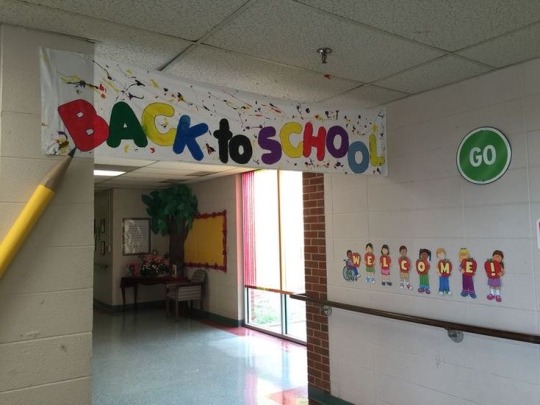

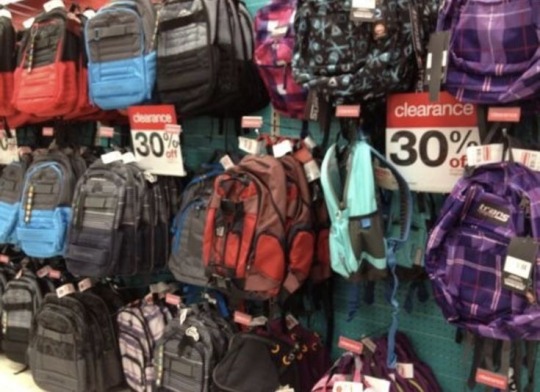



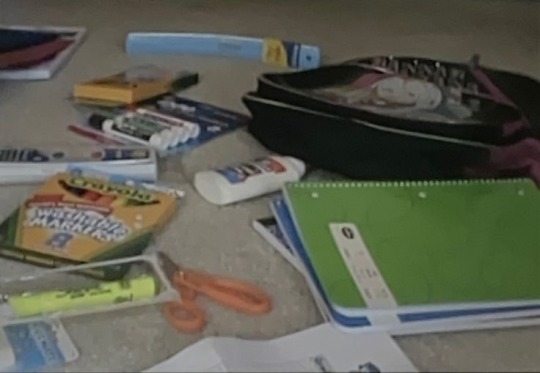
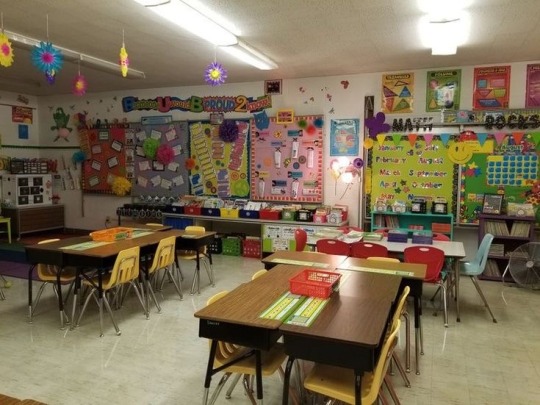


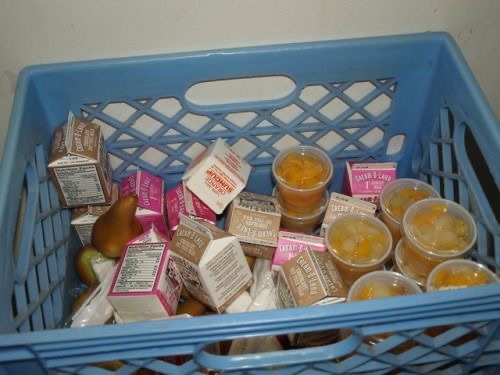
2000s back to school nostalgia
#back to school#school bus#classroom#school lunch#cafeteria#library#back to school shopping#backpacks#school supplies#shopping#nostalgia#nostalgic#nostalgiacore#school#schoolcore#childhood#childhood memories#2000s#early 2000s#mid 2000s#late 2000s#2000#2001#2002#2003#2004#2005#2006#2007#2008
546 notes
·
View notes
Photo

How to Make 1980s Rectangular School Lunch Pizza
53 notes
·
View notes
Text
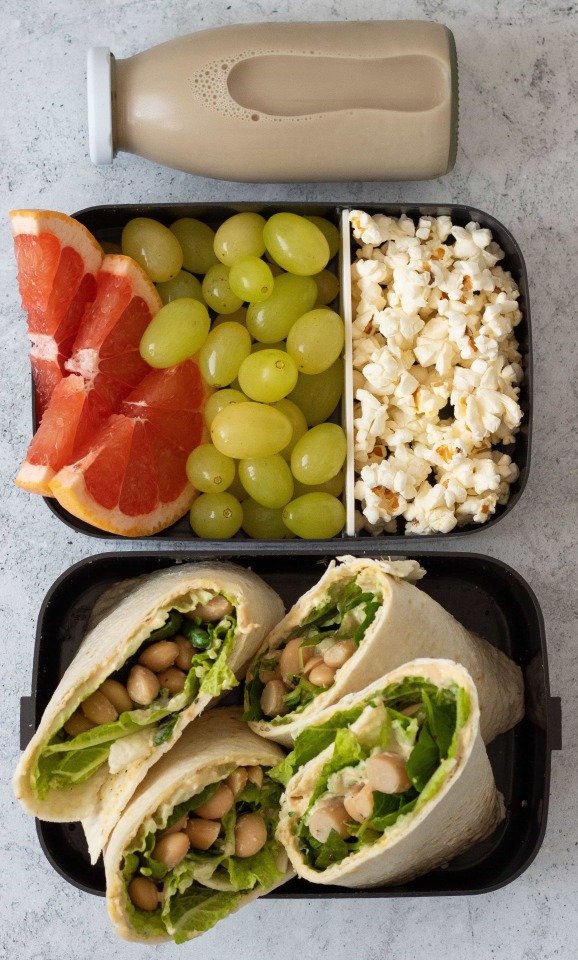
5 No-Heat Vegan School Lunch Ideas (Easy & Healthy Recipes)
Iced coffee with fresh grapefruit, grapes, popcorn and super green wraps.
#thegreenloot#lunch#lunch box#lunchbox#school lunch#work lunch#wraps#savoury#fitspo#fitspiration#fitblr#weightloss#weight loss#loseweight#lose weight#healthy#healthy food#nutrition#healthy eating#fitfam#healthblr#meal prep#grapes#grapefruit#popcorn#chickpeas
323 notes
·
View notes
Text
I don't give a fuck
60 notes
·
View notes
Text
The governor was firm: Nebraska would reject the new federal money for summer meals. The state already fed a small number of children when schools closed. He would not sign on to a program to provide all families that received free or cut-rate school meals with cards to buy groceries during the summer.
“I don’t believe in welfare,” the governor, Jim Pillen, a Republican, said in December.
A group of low-income youths, in a face-to-face meeting, urged him to reconsider. One told him she had eaten less when schools were out. Another criticized the meals at the existing feeding sites and held a crustless prepackaged sandwich to argue that electronic benefit cards from the new federal program would offer better food and more choice.
“Sometimes money isn’t the solution,” the governor replied.
.......
The new $2.5 billion program, known as Summer EBT, passed Congress with bipartisan support, and every Democratic governor will distribute the grocery cards this summer. But Republican governors are split, with 14 in, 13 out and no consensus on what constitutes conservative principle.
One red-state governor (Sarah Huckabee Sanders of Arkansas) hailed the cards as an answer to a disturbing problem. Another (Kim Reynolds of Iowa) warned that they might increase obesity. Some Republicans dismissed the program as obsolete pandemic aid. Some balked at the modest state matching costs. Others hinted they might join after taking more time to prepare.
The program will provide families about $40 a month for every child who receives free or reduced-price meals at school —$120 for the summer. The red-state refusals will keep aid from about 10 million children, about a third of those potentially eligible nationwide.
......
As with Medicaid, poor states are especially resistant, though the federal government bears most of the cost. Of the 10 states with the highest levels of children’s food insecurity, five rejected Summer EBT: Louisiana, Oklahoma, Mississippi, Alabama and Texas.
Like the school lunch program, it serves families up to 185 percent of the poverty line, meaning a family of three would qualify with an income of about $45,500 or less.
......
Some Republicans, in rejecting the aid, found critics in their own ranks. After Gov. Henry McMaster of South Carolina dismissed Summer EBT as a duplicative “entitlement,” State Senator Katrina Shealy, a fellow Republican, wrote a column with a Democratic colleague warning that “hunger does not stop during summer break.”
In an interview, Ms. Shealy said the state should not reject $65 million “just because Biden is president,” and perhaps just partly tongue-in-cheek wrapped her plea in Trumpian bunting: “Everyone wants to say, ‘America First’ — well, let’s feed our children first.”
Oklahoma initially said it rejected the program because federal officials had not finalized the rules. But responding to critics, Gov. Kevin Stitt, a Republican, sharpened his attack, calling Summer EBT a duplicative “Biden administration program” that would “cause more bureaucracy for families.”
Tribal governments, which have influence over large parts of the state, stepped in. Already feuding with Mr. Stitt, they promised to distribute cards to all eligible families on their land, regardless of tribal status, while bearing the $3 million administrative cost. The five participating tribes will cover nearly 40 percent of Oklahoma’s eligible children, most of them not Native American.
“I remain dumbfounded that the governor of Oklahoma would turn down federal tax dollars to help feed low-income children,” said Chuck Hoskin Jr., the principal chief of the Cherokee Nation.
-------------------------
some of the most stunning highlights of this story.
All I got to say is, let's feed the children? every single Democratic Governor took the money to feed the kids, every governor who rejected it, every single one, is a Republican. If you don't vote for Democrats you are STEALING food out of kids mouths.
2K notes
·
View notes
Text
A new federal rule will prohibit schools from charging low-income students transaction fees when their families electronically deposit funds into their lunch accounts. The policy was announced Friday by the Agriculture Department, which administers the national program that serves billions of student lunches and breakfasts every year. The ban on the “junk fees,” which will go into effect in the 2027-28 academic year, applies to students eligible for free and reduced-price school meals — those whose annual household incomes are 185% or less of the federal poverty level, which equals $57,720 maximum for a family of four. The Consumer Financial Protection Bureau, a government agency that aims to ensure fairness in the marketplace, estimated in a report in July that school meal payment processors collect more than $100 million in transaction fees a year. The report said the fees disproportionately burden lower-income households, which tend to make smaller, more frequent electronic deposits into their children’s accounts. That means that although students who qualify for reduced-price school meals cannot be charged more than 30 cents for breakfast and 40 cents for lunch, many families end up paying additional costs because of the fees they incur every time they deposit money into their meal accounts.
43 notes
·
View notes
Photo
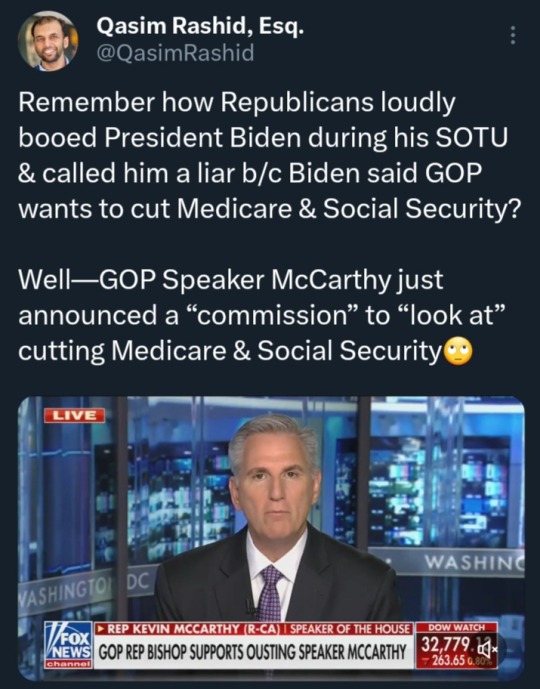

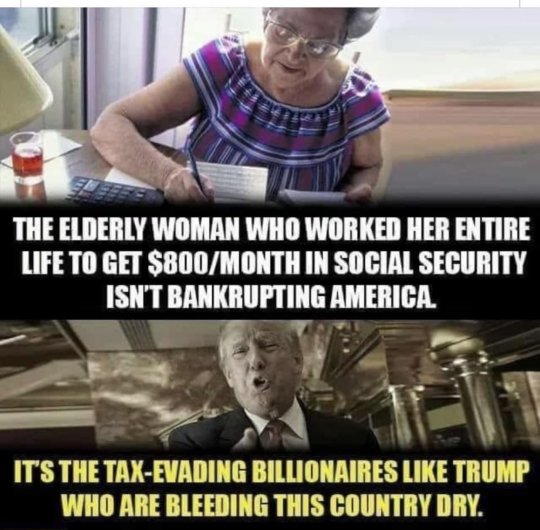

#Kevin McCarthy#Medicare#Social Security#Republican#Republicans#GOP#MAGA#tax#taxes#welfare#military#defense#budget#veteran#veterans#healthcare#Medicaid#SNAP#Meals on Wheels#school lunch
408 notes
·
View notes

